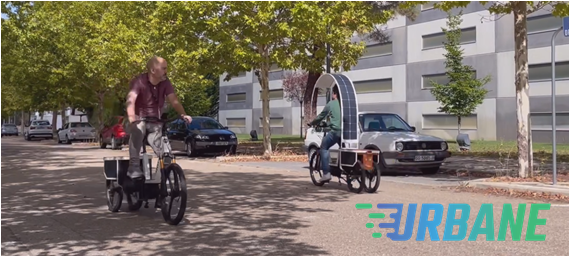Everyone knows that last-mile logistics negatively affects cities’ air quality. Its relevance in the total greenhouse gas emissions is driving logistics operators to electrify their fleets. Whereas in the past, the customers valued the speed of the service more highly, there is now a greater concern for sustainability and the environment when making an online purchase. In parallel, making urban logistics more sustainable requires the promotion of the public administration at this point, for economic reasons.
In the framework of EU Urbane project, CIDAUT is studying how much the air quality in Valladolid would improve if urban delivery services were electrified. As part of the study, a number of specialised prototype vehicles, designed and developed by IFEVS, will be put into circulation. As a special feature, these vehicles are partially powered by photovoltaic energy. Although the brand has several models, only the van and cargo bike will be put into circulation in Valladolid.
The study is focused on Boecillo Technological Park and the central area of Valladolid, which has unique characteristics. Specifically, these are an important historical centre, with a lot of distribution demand by hotels, restaurants and cafes, and a lot of pedestrians. CIDAUT has reached an agreement with the Spanish postal service so that they make deliveries of letters and parcels on the IFEVS vehicles. Their routes are being monitored; both with the vehicles they normally use and soon with the prototype vehicles, in order to establish a comparative of how much the city’s air quality would improve if electric vehicles were used.
As mentioned above, this study is supported by EU Urbane project, funding from Horizon Europe under Grant Agreement nº 101069782.
